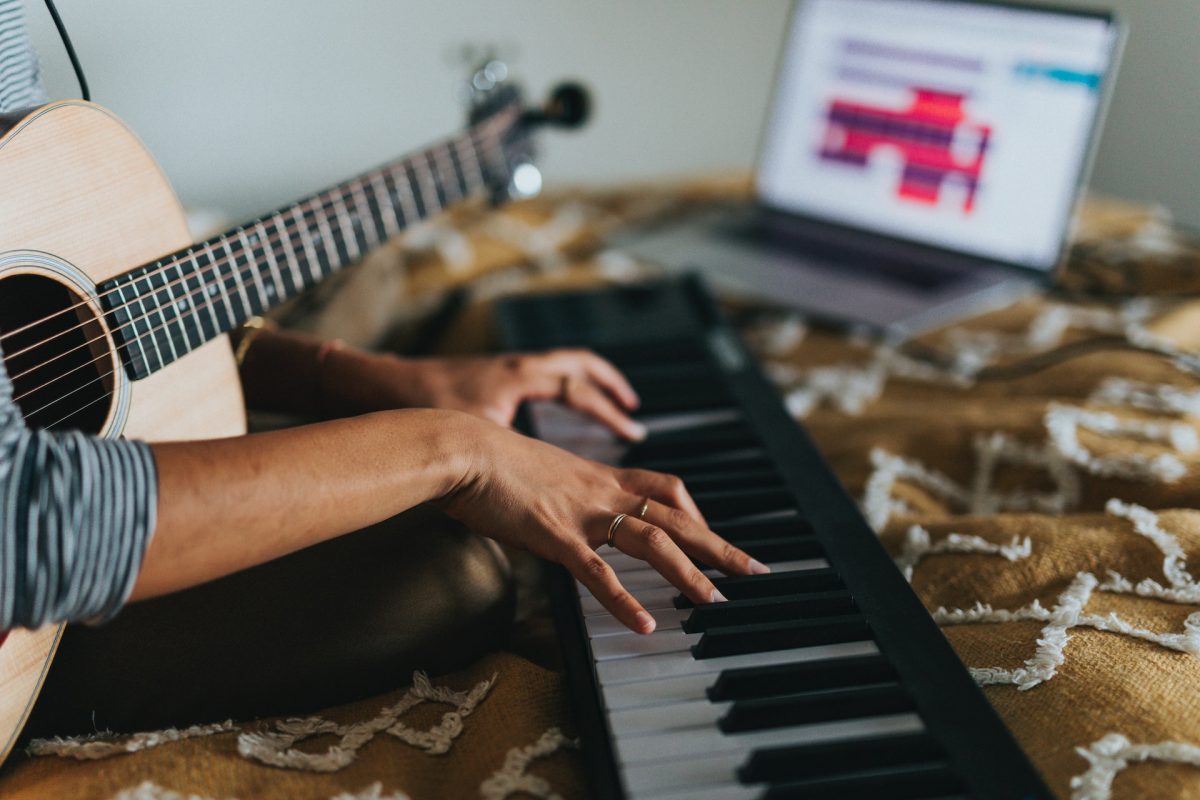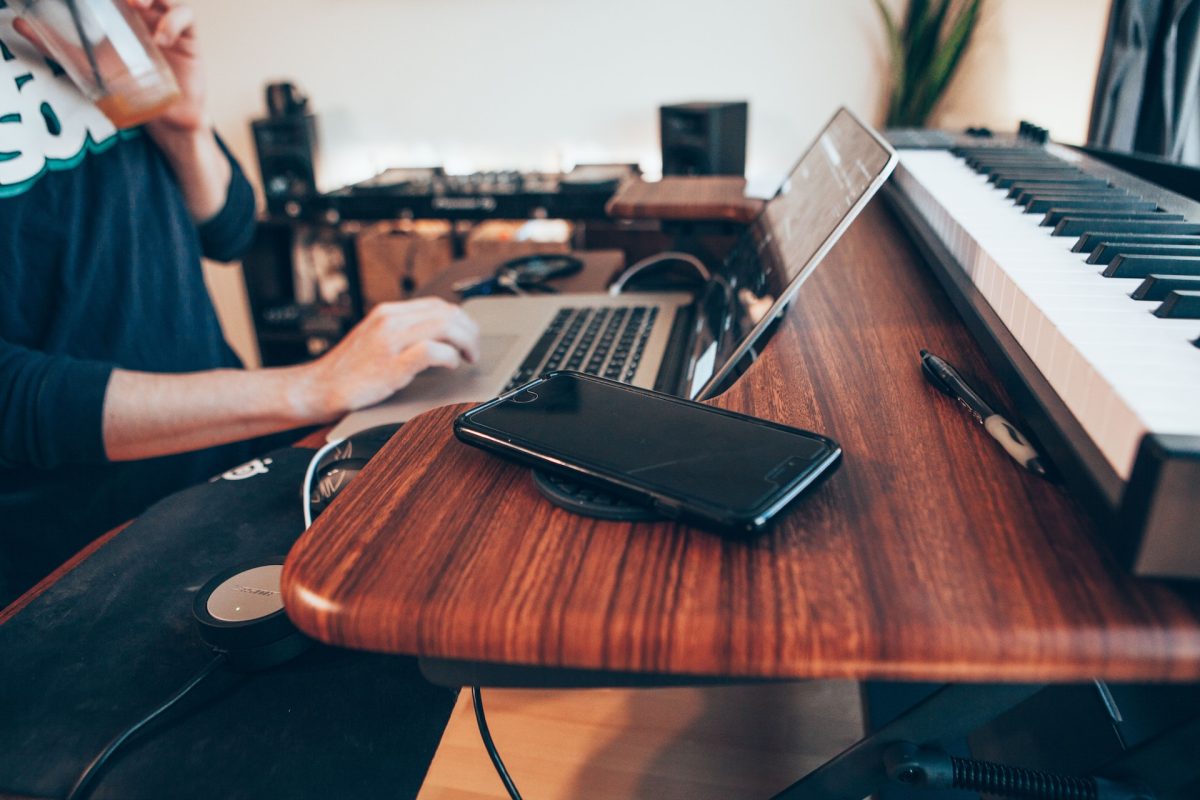Are you interested in playing or composing music but don’t know where to start? Do you feel overwhelmed by all the instruments, techniques, and theories out there?
Don’t worry, we’ve got you covered! We’ll share some simple steps and tips on how to get started with playing and composing music. Technology like a Singular Sound Beat Machine and the right software will ensure that you can get your start with playing and composing beautiful songs that resonate. Using the right technology will make a big difference to your skills.
Whether you’re a complete beginner or have some music experience already, these insights will help unleash your creativity and make your musical journey enjoyable. So grab your instrument (or pencil) and let’s dive in!

Table of Contents
Choose an Instrument
If you’re starting to get into playing and composing music, one of the first things you need to do is choose an instrument. This can be a daunting task, as there are so many instruments out there to choose from. Here are a few things to keep in mind when choosing an instrument:
- Style of Music
What style of music do you want to play? There are instruments suited for all different genres of music, so think about what kind of music you want to make before making your decision.
- Prior Experience
Do you have any prior experience with playing an instrument? If not, you may want to start with something relatively simple, like a piano or guitar. If you already know how to play another instrument, that can help inform your choice as well.
- Budget
What’s your budget? Instruments can range in price from very affordable to quite expensive. Keep in mind how much you’re willing (or able) to spend on an instrument when making your decision.
Once you’ve considered all of these factors, it’s time to start trying out different instruments until you find the one that’s right for you. The best way to do this is by taking lessons from a qualified instructor who can help guide you through the process. With a little time and effort, you’ll be playing and composing the music you love in no time!
Invest in an Instrument
There is no one answer to how much money you should spend on an instrument when you are first starting. However, buying a quality instrument will likely save you money in the long run as it will be easier to play and last longer. You can find good quality beginner instruments for around $200.
If you have the budget, consider investing in a more expensive instrument; however, don’t let cost be the only factor in your decision. There are always promos and discounts out there if you want to go for branded instruments. You can even search for a reverb coupon code or any other promo code out there and take advantage of related offers. Choose an instrument that you are comfortable with and that you will enjoy playing.
Find a Teacher or Take Online Courses
If you want to find a teacher, you can start by asking around at your local music store or searching online. Once you find a teacher, they will be able to help you learn the basics of playing an instrument, as well as how to read sheet music and understand music theory.
If you want to take online courses, there are many options available. You can find free courses, or paid courses that offer more in-depth instruction. Some courses focus specifically on composition, or on playing a particular type of instrument.
For those interested in digital music production and distribution, you might want to check out Mixea powered by DistroKid.
No matter what type of course you choose, make sure that it is taught by a qualified instructor who can provide you with the guidance and support you need to succeed.

Practice Regularly
When you are practicing, it is important to focus on your technique. Make sure that you are using the correct fingering for each note, and that you are playing the notes cleanly. Once you have mastered the basics of playing your instrument, you can start to experiment with different sounds and techniques.
It is also important to listen to music regularly. This will help you to understand how different pieces of music are put together, and it will also give you ideas for your compositions. Try to listen to a variety of genres of music, and pay attention to the structure of each piece.
If you want to get started with playing and composing music, make sure that you set aside time each week to practice. By doing this, you will quickly develop your skills and become a better musician.
Learn Music Theory
Music theory will help you understand how music works and how to create your compositions. There are plenty of resources available to help you learn music theory.
You can find online courses, books, and even games that can help you master the basics of music theory. Start by learning the basic concepts, then move on to more advanced topics like harmony and counterpoint.
Don’t be afraid to ask for help when learning music theory. If you’re having trouble understanding something, reach out to a friend or teacher who can explain it better. With a little effort, you’ll be surprised at how much fun music theory can be!
Listen to Music
By listening to music, you can start to get a feel for what you like and what you don’t like, as well as what works well together. Not only that, but you can also start to develop your musical taste and style.
Of course, you don’t just have to listen to music passively. You can also actively seek out new music to listen to. There are many ways to do this, such as scouring the internet for new artists or checking out recommended playlists on streaming services. You could even try attending live concerts or events whenever possible.
The important thing is that you take the time to listen to lots of different music so that you can develop your own musical identity. Who knows, maybe someday you’ll be the one making the music that others are listening to!
Experiment With Composition
When you’re first getting started, it’s important to find a comfortable position for your hands and fingers. You may want to try sitting at a keyboard or standing at a piano.
Whichever position you choose, be sure that your arms are in a relaxed position and that your wrists are not strained. Once you’ve found a comfortable position, you can begin familiarizing yourself with the notes on the staff.
To find the notes on the staff, start by looking at the treble clef. The treble clef is also known as the G clef because it looks like a spiral that wraps around the second line from the bottom of the staff.
The note on this line is G, so all of the notes on lines above and below this one are also Gs. The next highest line is F, followed by E, D, C, B, A, and finally G again. Now that you know where all of the notes are located on the staff, you can begin experimenting with different compositions.
Learn Composing and Playing Music Today
Learning to compose and play music today has a large number of benefits and can provide an enjoyable hobby and/or profession. With numerous resources at our disposal, it is easier than ever to get started.
So why not take the plunge and start learning music today? You never know, it might be the beginning of something beautiful.
- About the Author
- Latest Posts
Whether she is researching the latest trends in home decor, life-changing destination getaways, or the best way to maintain your finances, Dewey takes pride in leaving no stone unturned. She is passionate about distilling and delivering high-quality information that you can use to upgrade your life.

